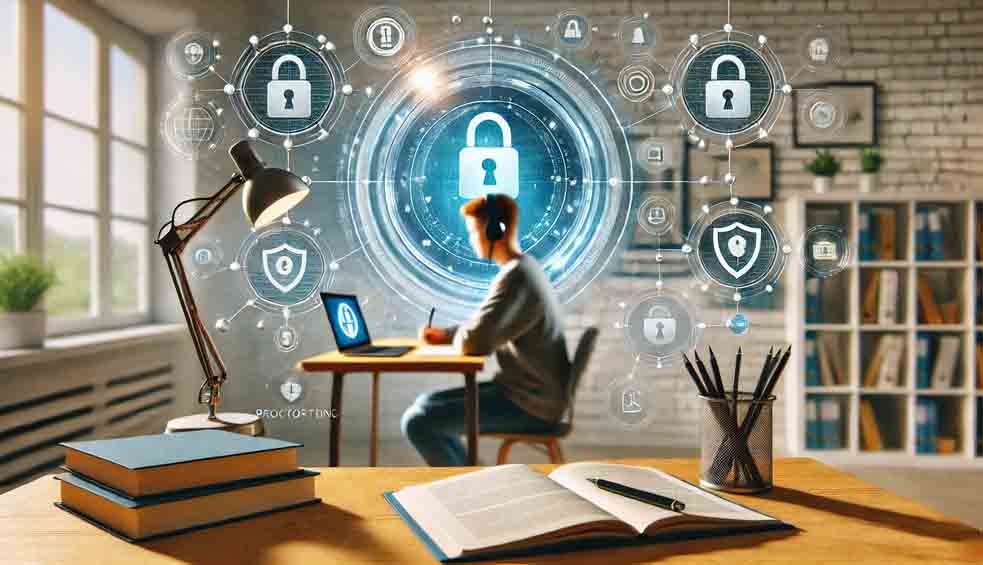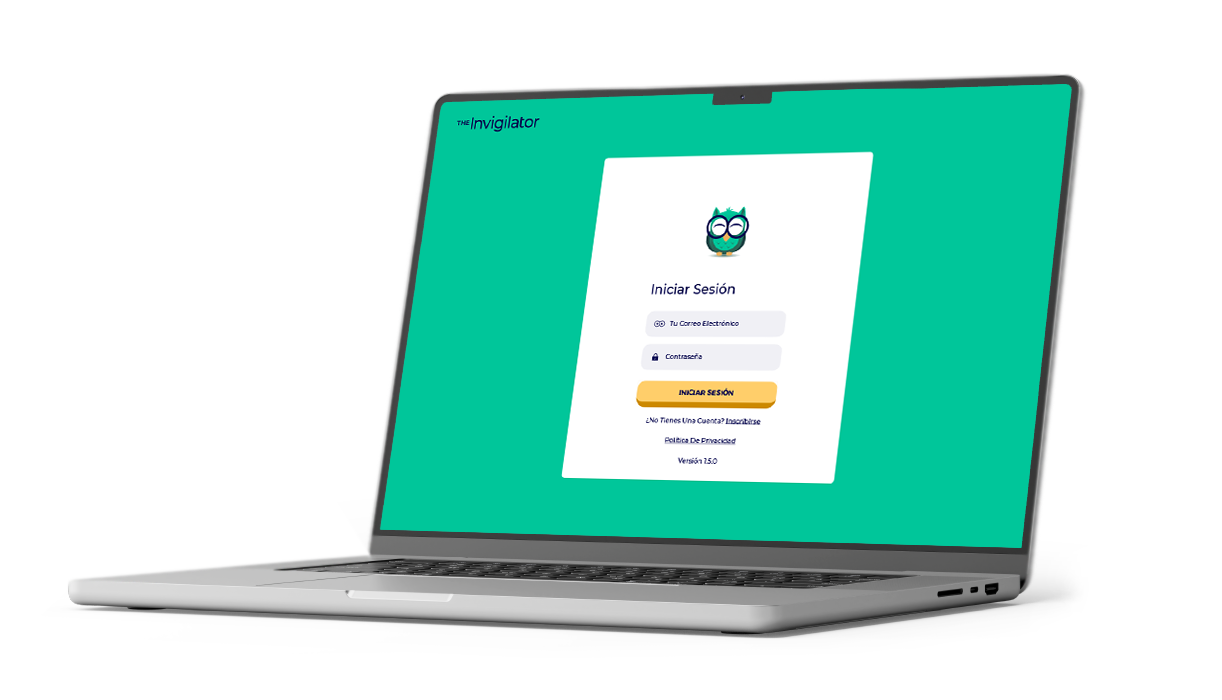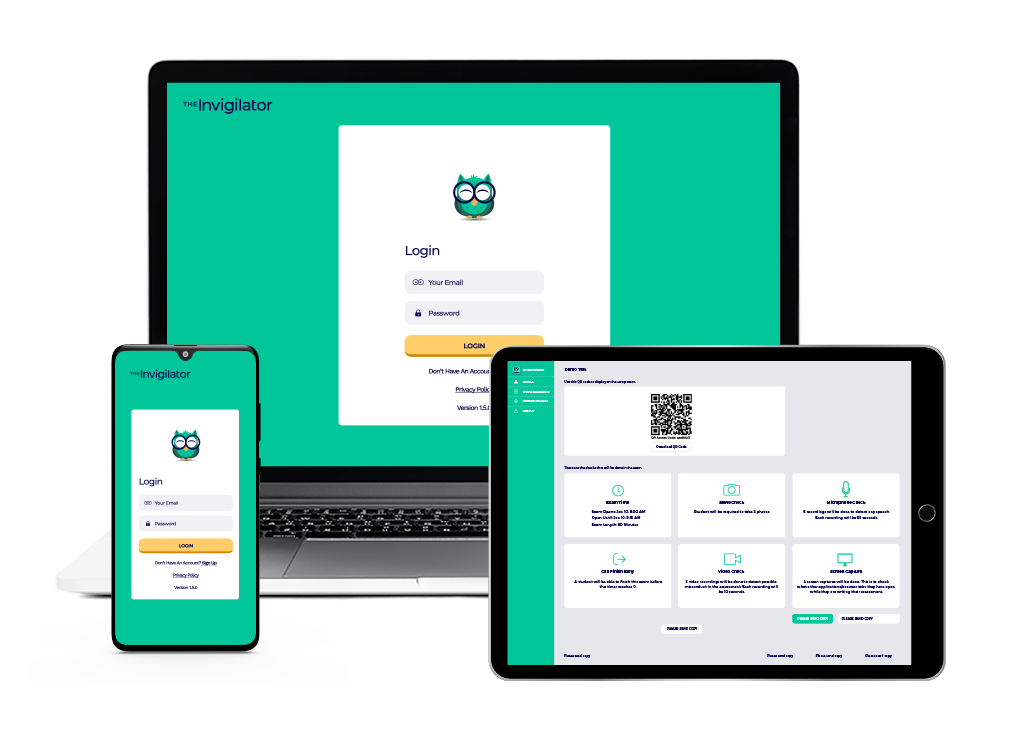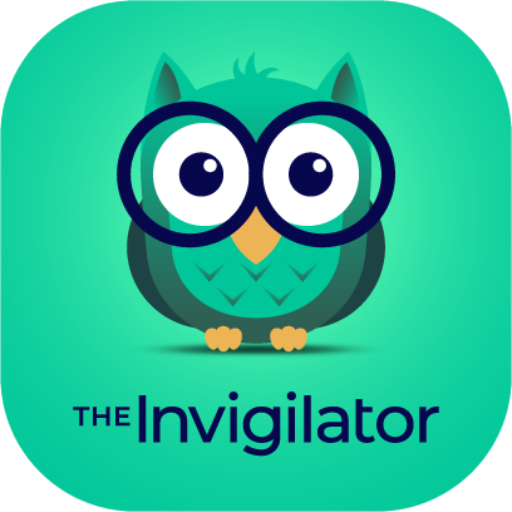As education moves increasingly toward digital platforms, the rise of remote learning has brought both opportunities and challenges. One of the most critical challenges is maintaining the integrity of assessments and exams in a virtual environment. The need to prevent cheating, ensure fairness, and protect the academic integrity of institutions has driven the development of proctoring tools, which play a vital role in safeguarding the security of online exams.
Proctoring tools, like those integrated into The Invigilator App, have become indispensable for ensuring remote learning security. These tools help maintain exam integrity by monitoring students’ activities during exams, identifying suspicious behaviour, and providing a secure environment for both institutions and students. This article explores how proctoring tools are pivotal in protecting the integrity of remote learning and safeguarding assessments.
1. The Importance of Remote Learning Security
The shift towards remote learning has accelerated significantly, driven by global events such as the COVID-19 pandemic. However, the challenge of ensuring that online exams are secure, fair, and free from misconduct has never been greater. Educational institutions must implement robust measures to protect the credibility of remote learning programmes and assessments. Without secure remote exams, the value of qualifications could be called into question, potentially undermining the entire educational system.
Proctoring tools serve as a vital component of remote learning security by providing educators with the ability to monitor, control, and safeguard online assessments. Through the use of advanced technologies such as artificial intelligence, video monitoring, and biometric verification, these tools create a virtual exam hall environment where students are held to the same standards as traditional in-person exams.
2. Types of Proctoring Tools and Their Role in Exam Integrity
Proctoring tools come in various forms, each with distinct features designed to enhance the security of online exams. Understanding the different types of proctoring tools and how they work is crucial for institutions aiming to implement an effective remote assessment strategy.
a) Live Proctoring: In live proctoring, an invigilator monitors students in real-time during their exam through video feeds. This type of proctoring closely mirrors the in-person exam environment and allows proctors to intervene if they observe suspicious behaviour. Live proctoring is typically used for high-stakes exams where maintaining integrity is paramount.
b) Automated Proctoring: Automated proctoring relies on artificial intelligence to monitor exam activities. These tools use algorithms to detect unusual behaviour, such as multiple faces on the screen, eye movements, or background noises, and flag these actions for review. Automated proctoring is cost-effective and scalable, making it an ideal solution for large institutions conducting mass assessments.
c) Recorded Proctoring: In recorded proctoring, the exam session is recorded, and the footage is reviewed after the exam. This type of proctoring allows institutions to conduct exams asynchronously, giving students the flexibility to take exams at their convenience while maintaining security through post-exam analysis.
Each of these proctoring methods has its strengths, and educational institutions can select the most appropriate approach based on the nature of the exam and the level of security required.
3. The Role of AI and Machine Learning in Proctoring
Artificial intelligence (AI) and machine learning (ML) have revolutionised the field of online exam proctoring, making it possible to automate the monitoring process with unprecedented accuracy. AI-powered proctoring tools can analyse video feeds and behavioural data in real time, detecting signs of cheating, such as a student looking off-screen, the presence of unauthorised individuals, or the use of electronic devices.
a) Real-Time Monitoring: AI-based systems can monitor exam takers continuously, providing real-time alerts to examiners if suspicious behaviour is detected. This allows proctors to take immediate action, such as pausing the exam or requesting additional verification.
b) Behavioural Analytics: AI tools are also capable of analysing patterns of student behaviour throughout the exam. For example, a sudden increase in typing speed or frequent switching between windows could indicate potential misconduct. By using these behavioural insights, institutions can ensure a higher level of exam security.
c) Continuous Learning: Machine learning algorithms allow proctoring tools to improve over time. As the system processes more exams, it becomes better at distinguishing between genuine anomalies and innocent actions, reducing false positives and improving overall accuracy.
AI’s role in proctoring is becoming increasingly important as institutions seek more efficient and scalable solutions to safeguard remote assessments.
4. Addressing Student Privacy Concerns
One of the main challenges associated with proctoring tools is balancing security with privacy. Students often express concerns about being monitored during exams, particularly when it involves webcam surveillance or the collection of biometric data. It is essential for educational institutions to address these concerns by ensuring transparency and providing clear guidelines on how proctoring tools will be used.
a) Transparency and Consent: Institutions should provide students with detailed information about the proctoring process, including what data will be collected, how it will be used, and how long it will be stored. Obtaining explicit consent from students is crucial to maintaining trust and compliance with data protection regulations such as the General Data Protection Regulation (GDPR).
b) Minimising Data Collection: Proctoring tools should be designed to collect only the data necessary for maintaining exam integrity. For instance, while video monitoring may be required, collecting excessive personal information or monitoring students beyond the exam duration should be avoided.
c) Secure Data Handling: All data collected during proctored exams must be handled securely. Encryption should be used to protect sensitive information, and institutions should implement robust policies for data retention and deletion after exams are completed.
By addressing privacy concerns head-on, educational institutions can foster a more positive and secure remote exam experience.
5. The Future of Proctoring and Remote Assessments
As remote learning continues to grow, the demand for secure and efficient proctoring solutions will only increase. Innovations in AI, data security, and user experience are shaping the future of proctoring tools, providing educational institutions with more advanced ways to safeguard online exam integrity.
a) AI-Driven Insights: The next generation of proctoring tools will likely offer even more advanced AI-driven insights, capable of predicting and preventing cheating before it happens. This could include the use of predictive analytics to identify students at higher risk of misconduct based on their past behaviour or performance patterns.
b) Seamless Integration with Learning Management Systems (LMS): Proctoring tools are expected to integrate more seamlessly with existing learning management systems, making the exam process smoother for both students and administrators. These integrations will enable automatic exam scheduling, grading, and result distribution while maintaining security throughout the process.
c) Enhanced User Experience: Future proctoring tools will place a greater emphasis on user experience, with more intuitive interfaces and better support for students. The goal is to reduce the stress and anxiety associated with online proctoring, making remote assessments as accessible and fair as possible.
As these trends continue to evolve, institutions that adopt advanced proctoring tools like The Invigilator App will be well-positioned to ensure the security and integrity of their remote learning programmes.
Conclusion
The role of proctoring tools in safeguarding remote learning integrity cannot be understated. As more institutions embrace digital education, the need to maintain exam security and academic fairness is paramount. Proctoring tools provide a robust solution to these challenges, offering real-time monitoring, AI-powered analysis, and secure data handling to ensure that remote exams remain credible.
Educational institutions looking to secure their remote exams and protect the integrity of their qualifications can benefit significantly from using advanced proctoring tools like The Invigilator App. These tools not only safeguard assessments but also ensure that students are evaluated fairly, preserving the value of online learning for all.
If you’re ready to enhance the security of your remote exams and protect academic integrity, contact us today to learn how The Invigilator App can help. Visit our Contact Page for more information.
FAQs and Answers
- What are proctoring tools in online education?
Proctoring tools are software solutions that monitor students during online exams to prevent cheating and ensure academic integrity. - How do proctoring tools maintain remote learning integrity?
They use features like live monitoring, AI detection, screen recording, and identity verification to secure remote assessments. - What types of proctoring tools are available?
The main types include live proctoring, automated AI-based proctoring, and recorded proctoring for post-exam review. - How does AI enhance exam security in proctoring tools?
AI monitors behaviour, detects irregularities in real time, and learns from past patterns to reduce false positives and improve accuracy. - Do proctoring tools invade student privacy?
When implemented ethically, proctoring tools use minimal, essential data, follow GDPR rules, and seek student consent beforehand. - Can students cheat during a remotely proctored exam?
It’s difficult. Proctoring tools detect multiple faces, unusual screen activity, and unauthorised audio or movement, flagging violations. - Are proctoring tools compatible with learning platforms?
Yes, modern proctoring tools integrate with Learning Management Systems (LMS) for streamlined setup, monitoring, and reporting. - Why is The Invigilator App ideal for remote proctoring?
The Invigilator App combines AI, offline functionality, low data usage, and robust security to support inclusive, effective remote assessments.









